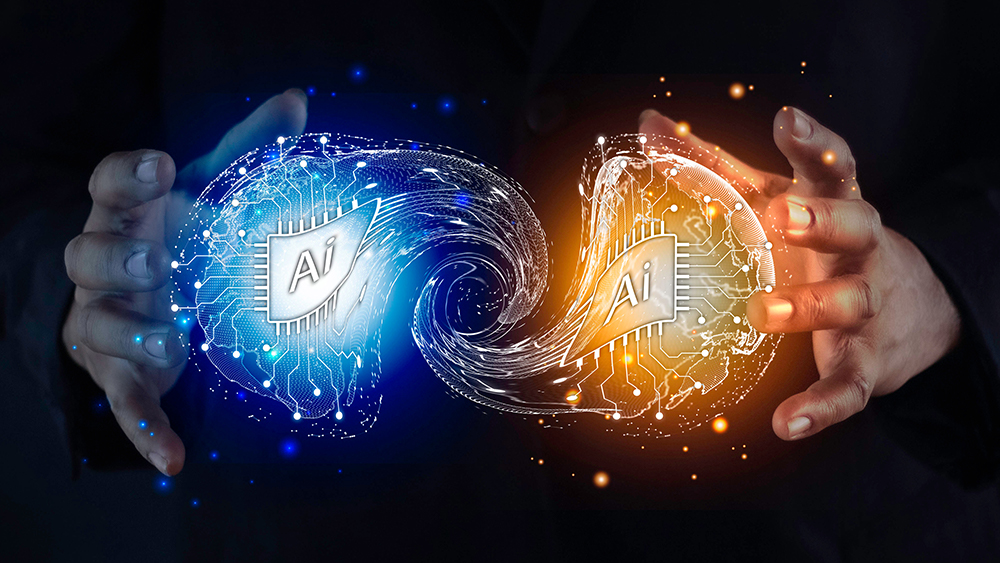 Parler
Parler Gab
Gab
NG, other AI experts: World is running out of data on the internet
On Jan. 16, AI experts like Ng sat down for a panel discussion titled "The Expanding Universe of Generative Models." Other in attendance were Yann LeCun, Turing Award-winning computer scientist often called one of the Godfathers of AI; Daphne Koller, founder and CEO of Insitro Inc and a co-founder of Coursera; Kai Fu Lee, Computer Scientist and founder of 01.AI Pte; and Aidan Gomez, co-founder and CEO of Cohere Inc. These experts agreed on one thing: The world is now running out of data on the internet to capture and process following the first boom of generative models and generative AI in recent years. LeCun said people have used all the public data on the internet, although a single person would take 150,000-200,000 years to read all of them. "Data has been the single biggest enabler to the incredible amount of Gen AI progress we have seen so far. We have just scratched the surface of the data that is going to become available. We have agents in place with augmented reality. There is data hidden in silos, we have to make it more interactive," Koller added. Meanwhile, Ng further warned that the ceiling will get harder to break in the next phase citing how the world has seen the text revolution happen last year. "I think this year we will see the image processing revolution take place. I am seeing a lot of revolution happen in automation rather than prompt LLM [large language model], get a response, etc.," he said. "We are used to running LLMs in the Cloud but now with more open source, we will be running a lot of LLMs on our own devices. We have all of these vectors of innovation and I am optimistic about the opportunity." For Lee, the pace of innovation that was seen in generative AI last year will likely slow down a bit, but it will continue to grow. After adding more computing and data, there's a scope for more fine-tuning into different aspects as more and more entrepreneurs get into the game, he said, adding that one shouldn't be missing on the commercial value text-based LLMs have. Gomez agreed, saying: "We have huge bottlenecks today, we already know the limitations in the architecture we have and the methods we are using. At the same time, hardware is getting better. The next generation of GPUs is going to be a big step over the generation we have today, it will unlock a much bigger scale." Check out FutureScienceNews.com for updates on AI technology and the repercussions of its applications. Watch the video below that talks about deception and debauchery happening in Davos during WEF 2024. This video is from Son of the Republic channel on Brighteon.com.More related stories:
WEF globalist Yuval Harari hints that Trump will get elected, but then what? Is 2024 the year a one-world global government emerges from the rubble? In five years, nearly HALF of all human skills will be replaced by AI.Sources include:
ReclaimTheNet.org WEForum.org MoneyControl.com Brighteon.comSurprise new illness hitting cruise ships: ‘My puke was bright blue’
By News Editors // Share
Iran denies involvement in deadly attack on U.S. military base in Jordan
By Cassie B. // Share
Falsified data scandal forces Harvard teaching hospital to retract fraudulent science papers
By Ethan Huff // Share
French FM: Russia to control 30% of worldwide wheat exports if Ukraine loses the war
By Belle Carter // Share
Governments continue to obscure COVID-19 vaccine data amid rising concerns over excess deaths
By patricklewis // Share
Tech giant Microsoft backs EXTINCTION with its support of carbon capture programs
By ramontomeydw // Share
Germany to resume arms exports to Israel despite repeated ceasefire violations
By isabelle // Share










